If you think that Artificial Intelligence (AI) will eventually be taking jobs from artists and designers, you’re probably right.
Only it won’t be in the ways we expect.
Many (most?) artists make ends meet not by doing whatever art they want to—they button up, package, and sell their talents daily as part of paid work at marketing departments, in agencies, at corporations, in freelance gigs, contests, and beyond.
AI is coming, hard, for their menial tasks like image cropping, creating banner advertisements, making social media posts, organizing content, and winning $300 in fine arts competitions.
On more complex projects, a highly paid content consultant will probably step in to tidy up the AI’s output before publication.
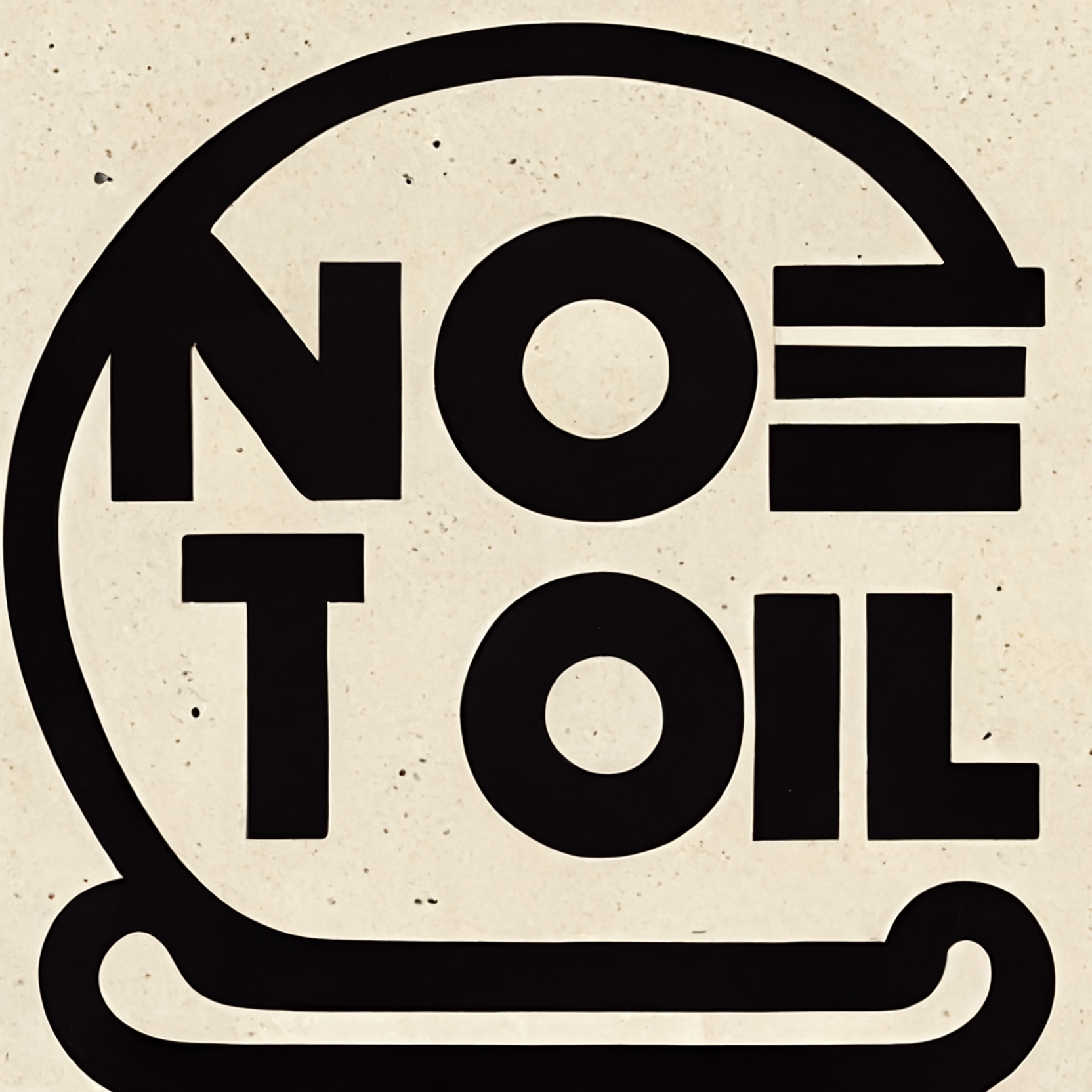

midjourney AI prompts :: 'a logo for a not for profit oil company'; 'a barrel of oil called "nightmare fuel"'
Because the people paying are often doing it to spread a profit-generating message, the line between real and fake is free to trend in any direction, so long as the balance sheet thrives and dividends flow.
In the name of business, remember, humans dreamt up the need to depict cigarette-smoking camels, cola-loving polar bears, and Galactic Empire-fighting Nissan Rogues.
Virtual AI “artists” don’t bother me, but an AI sketch artist? Horrifying. AI-engineered structural building supports don’t bother me, AI-planned neighborhoods do.
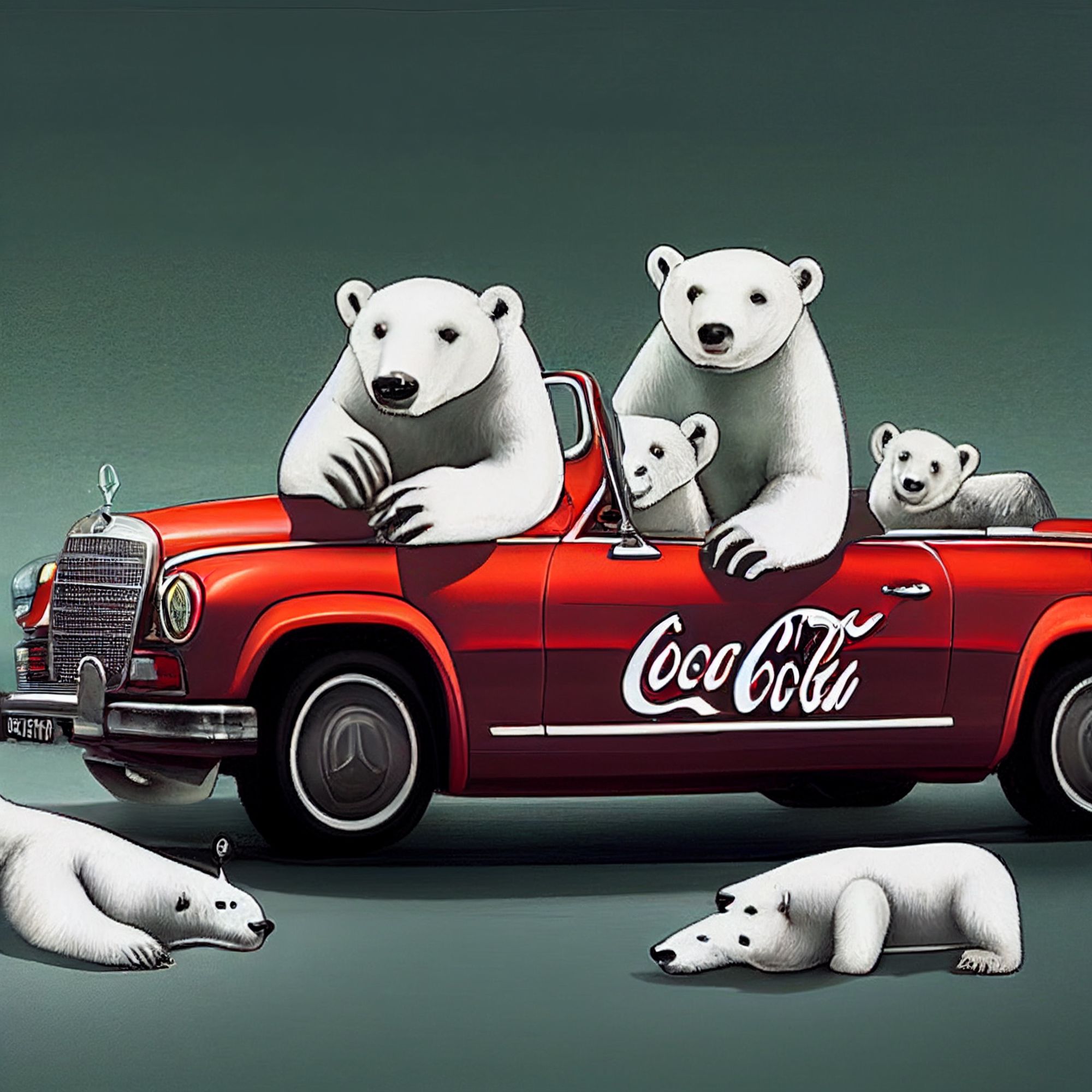
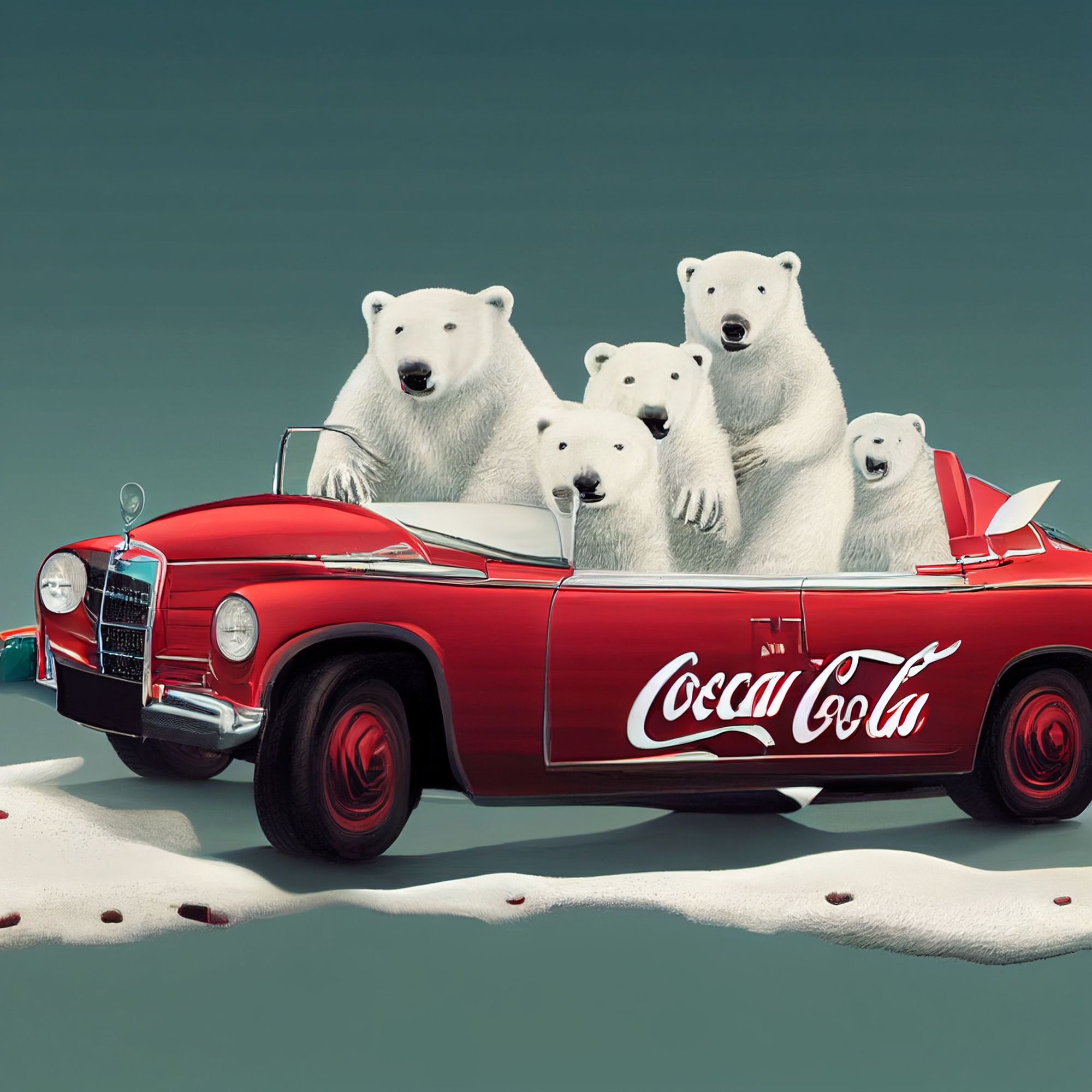
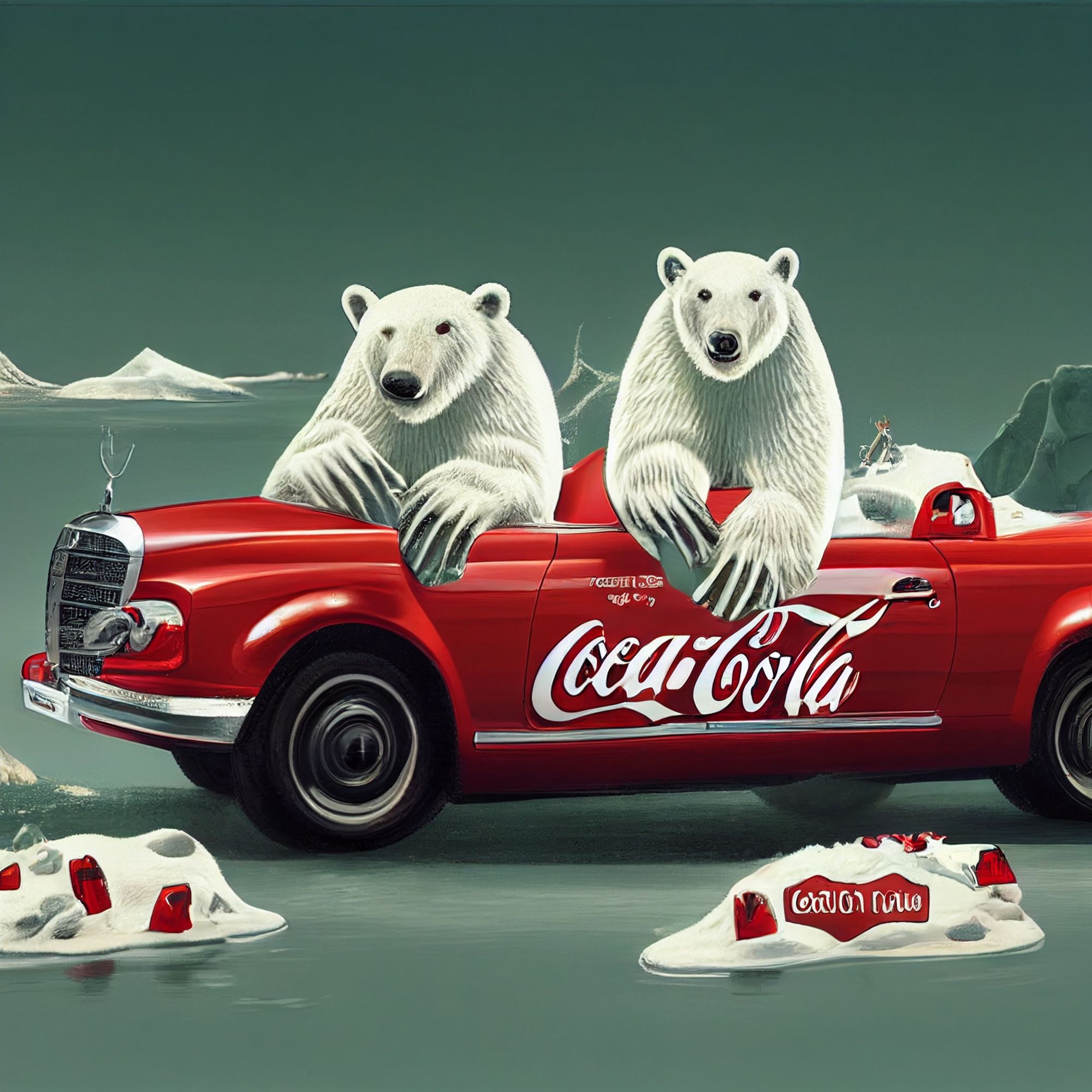
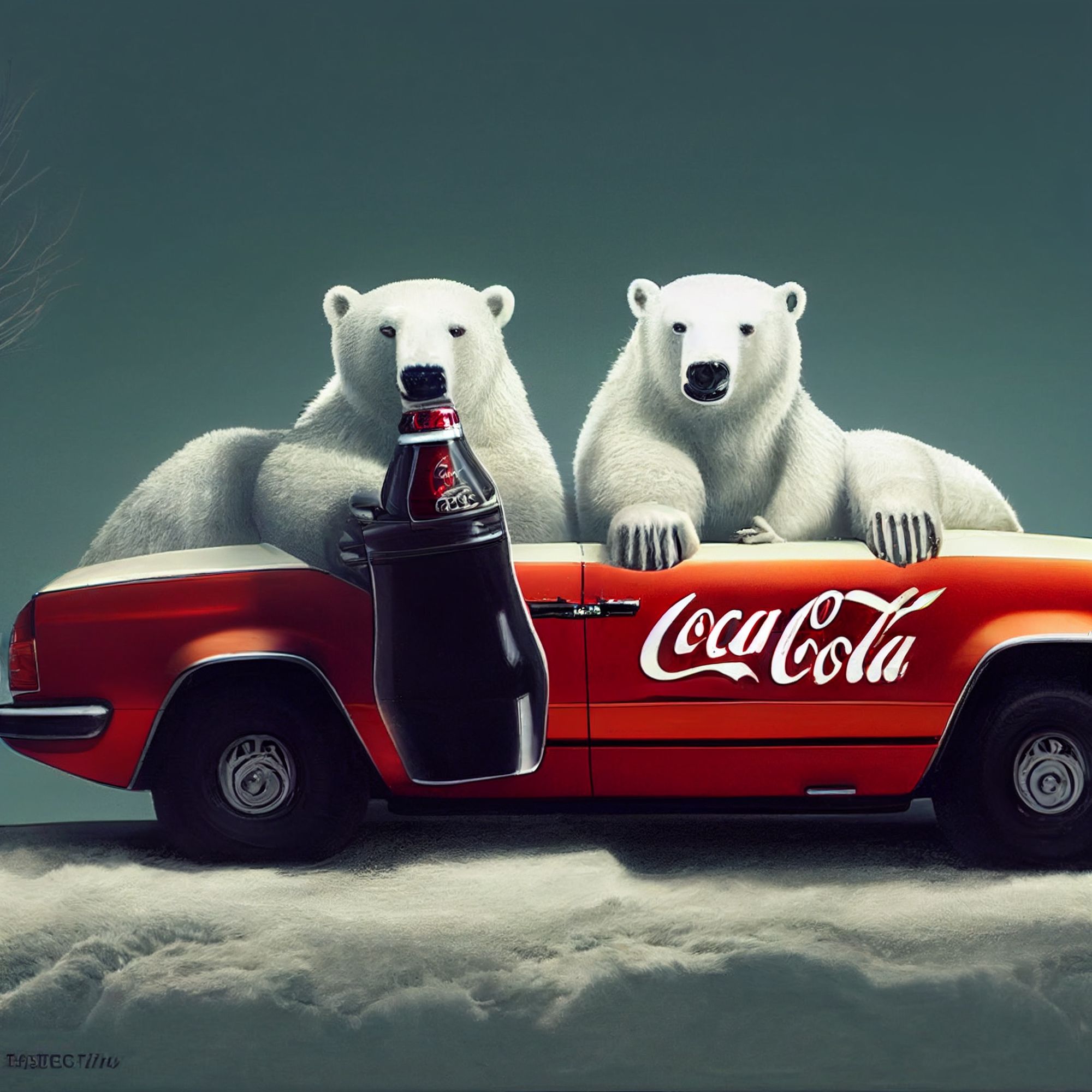
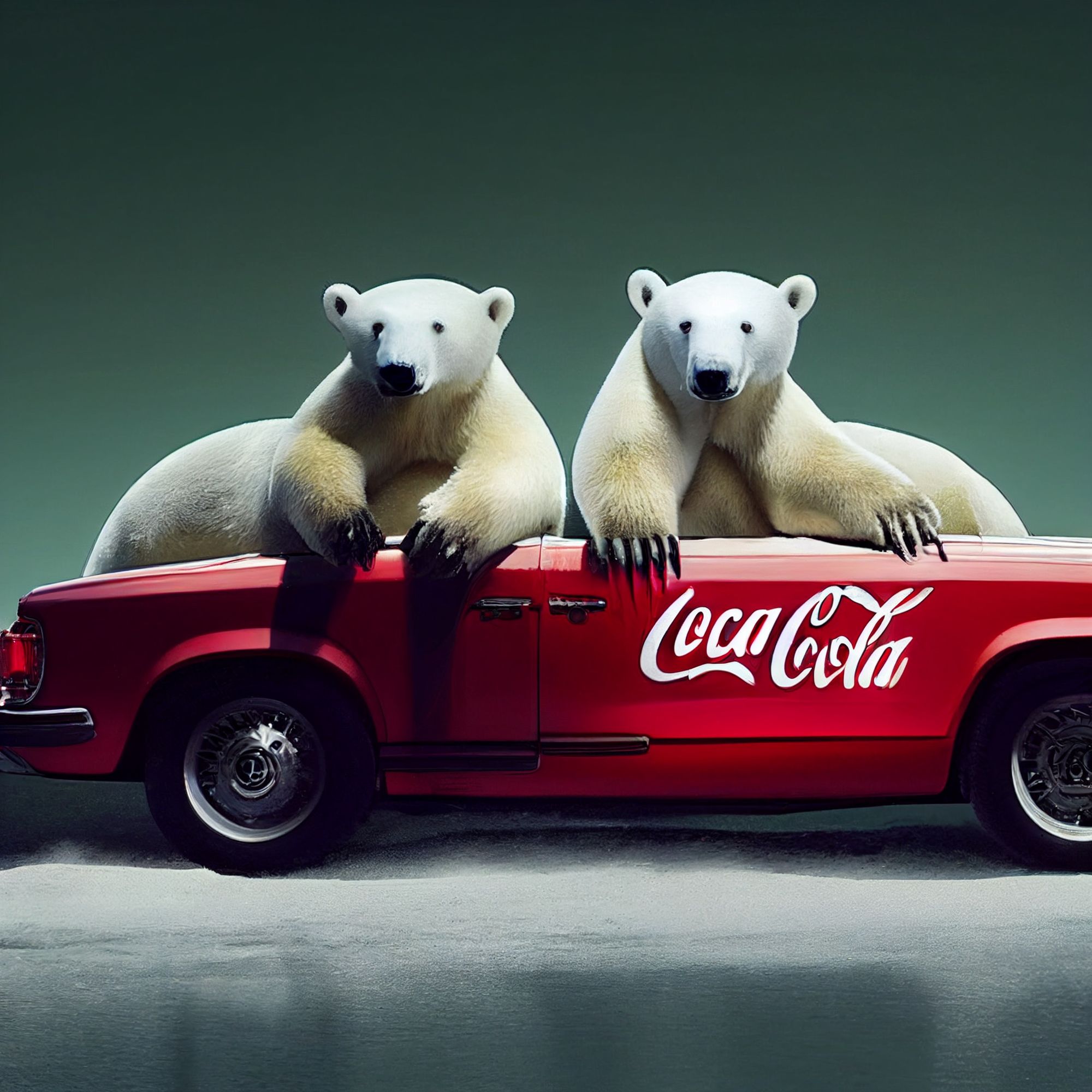
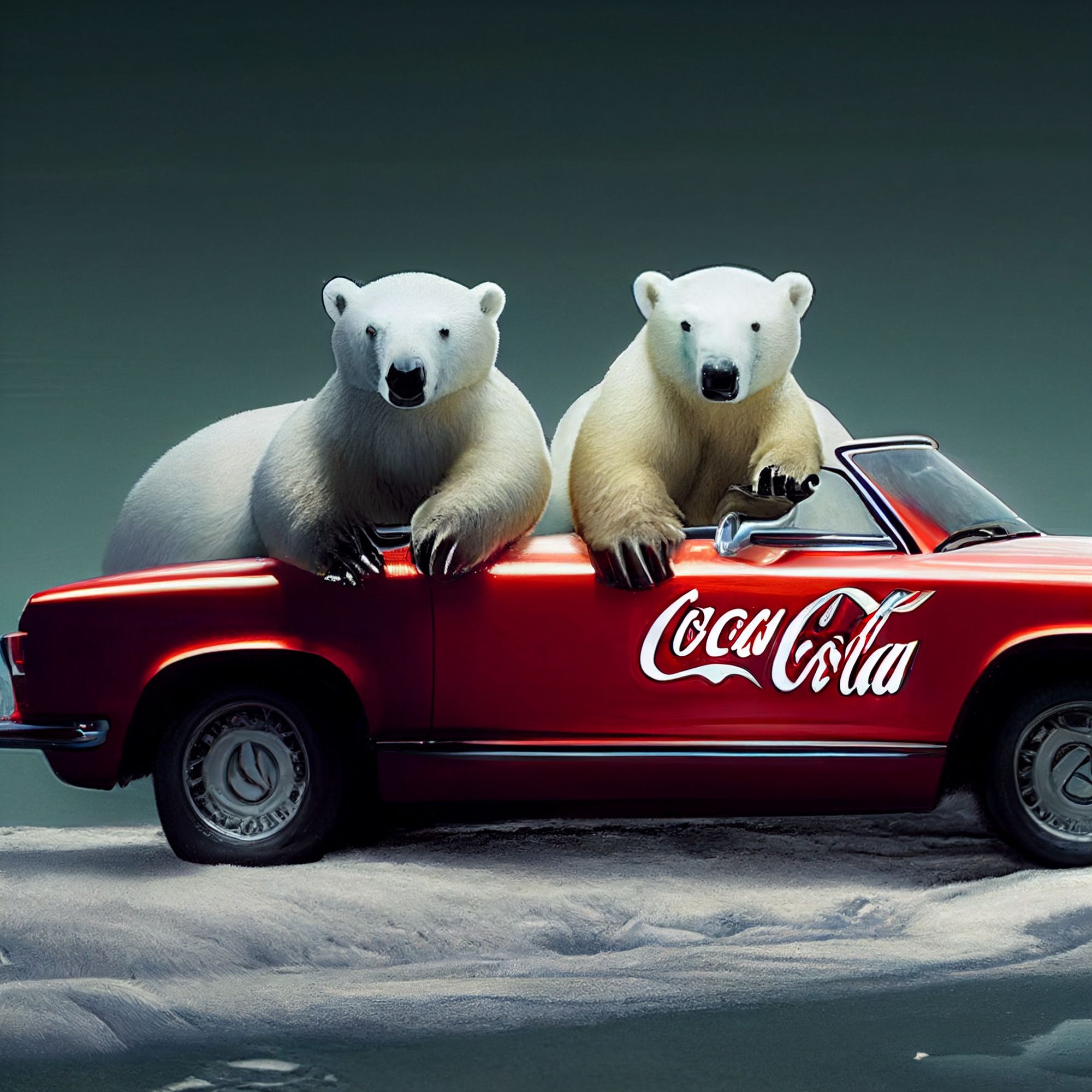
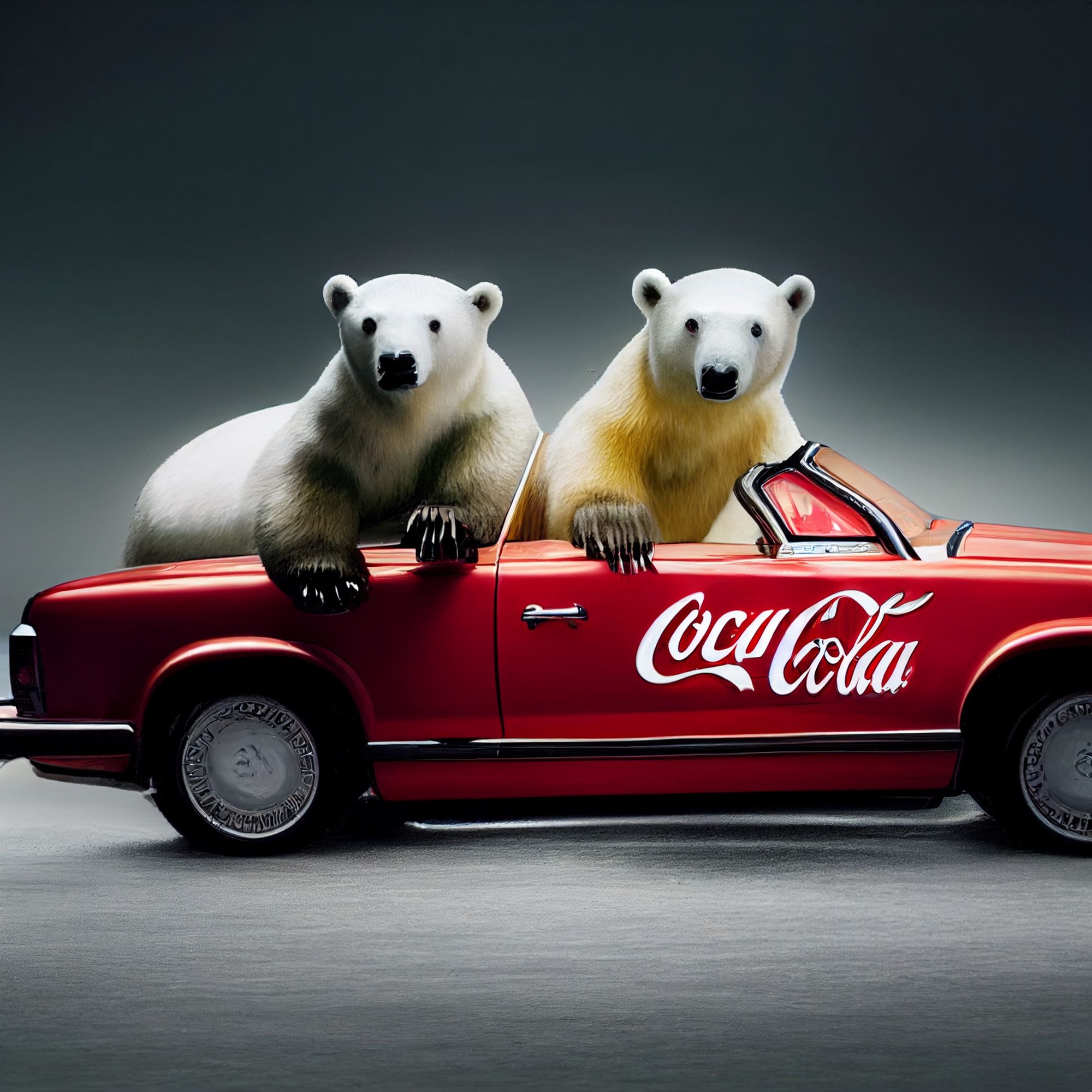
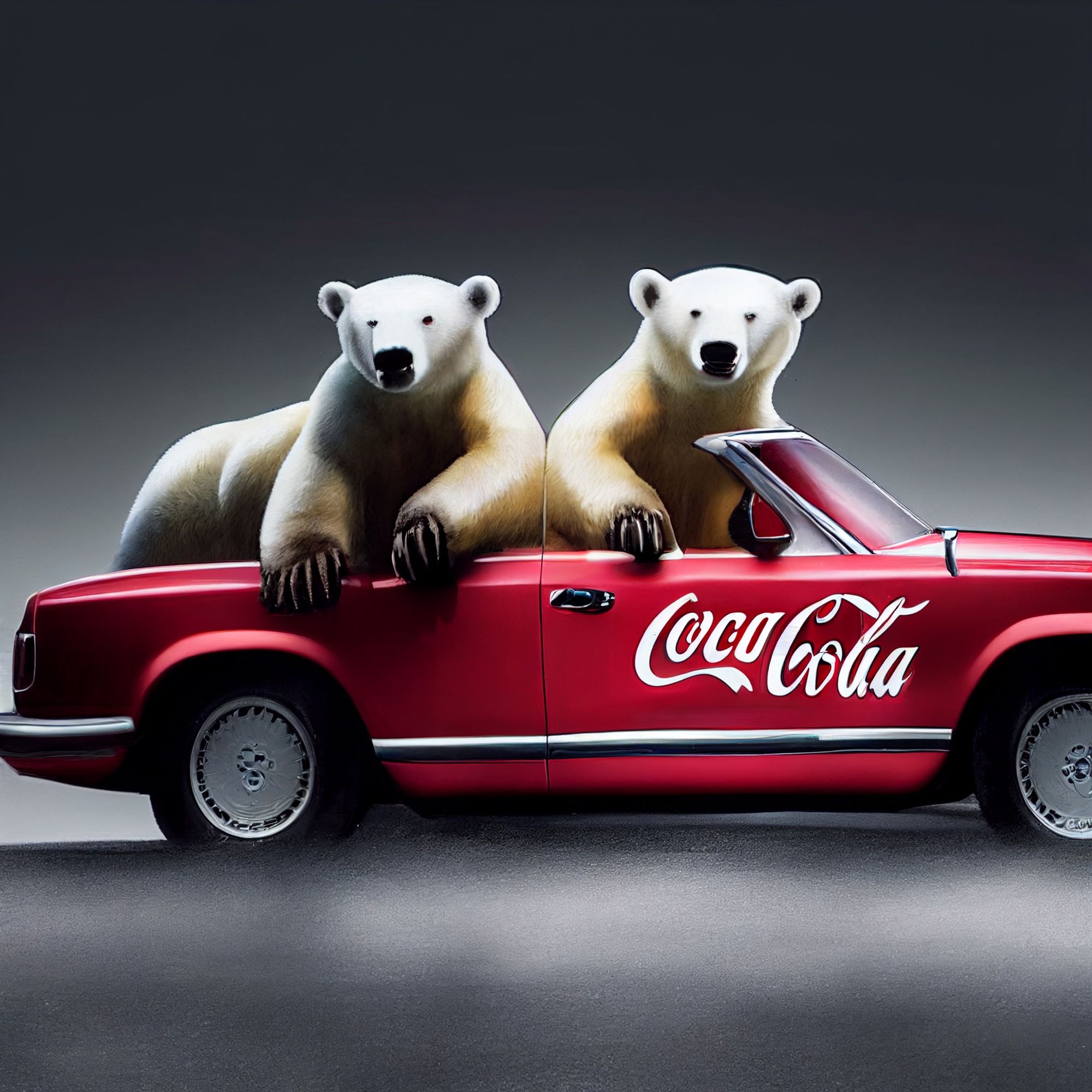
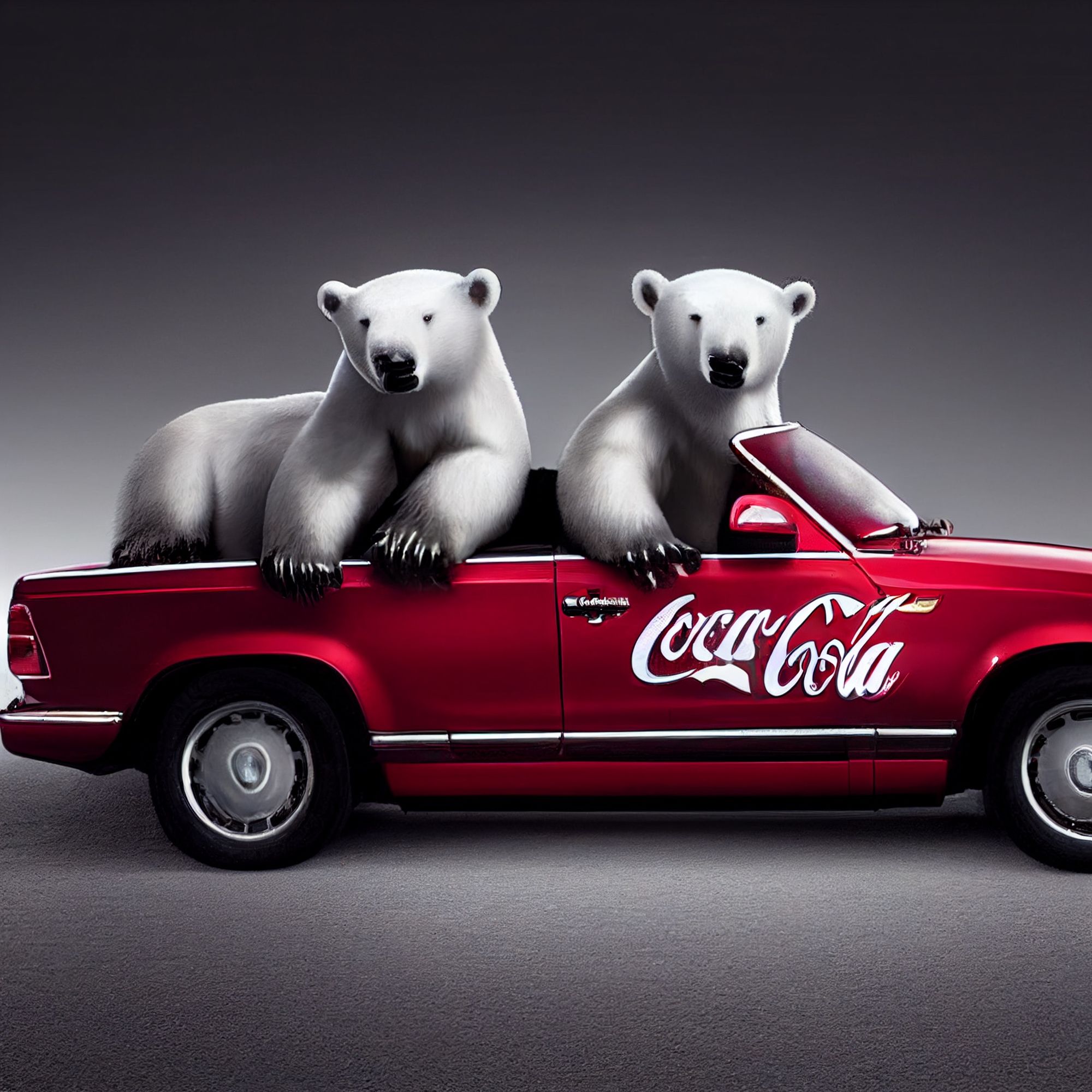
midjourney AI prompt :: 'coca-cola polar bears in a convertible Mercedes'
Start wondering who holds the computing power of AI and what they intend to do with it. As long as there is a person with final say, AI is an ever-expanding tool for us to wield responsibly.
AI is not replacing humans: our bosses are.
Between the abacus and supercomputer, did society leave mathematicians behind? Are homebuilders lacking work because of 3D printers and rapid manufacturing? We master, remix, and create with our tools because we invented them to serve us.
New tools simply offer new ways to express human desires—maybe a desire as simple as wanting AI to generate an old postcard of the Pacific ocean churning next to California Highway 1.
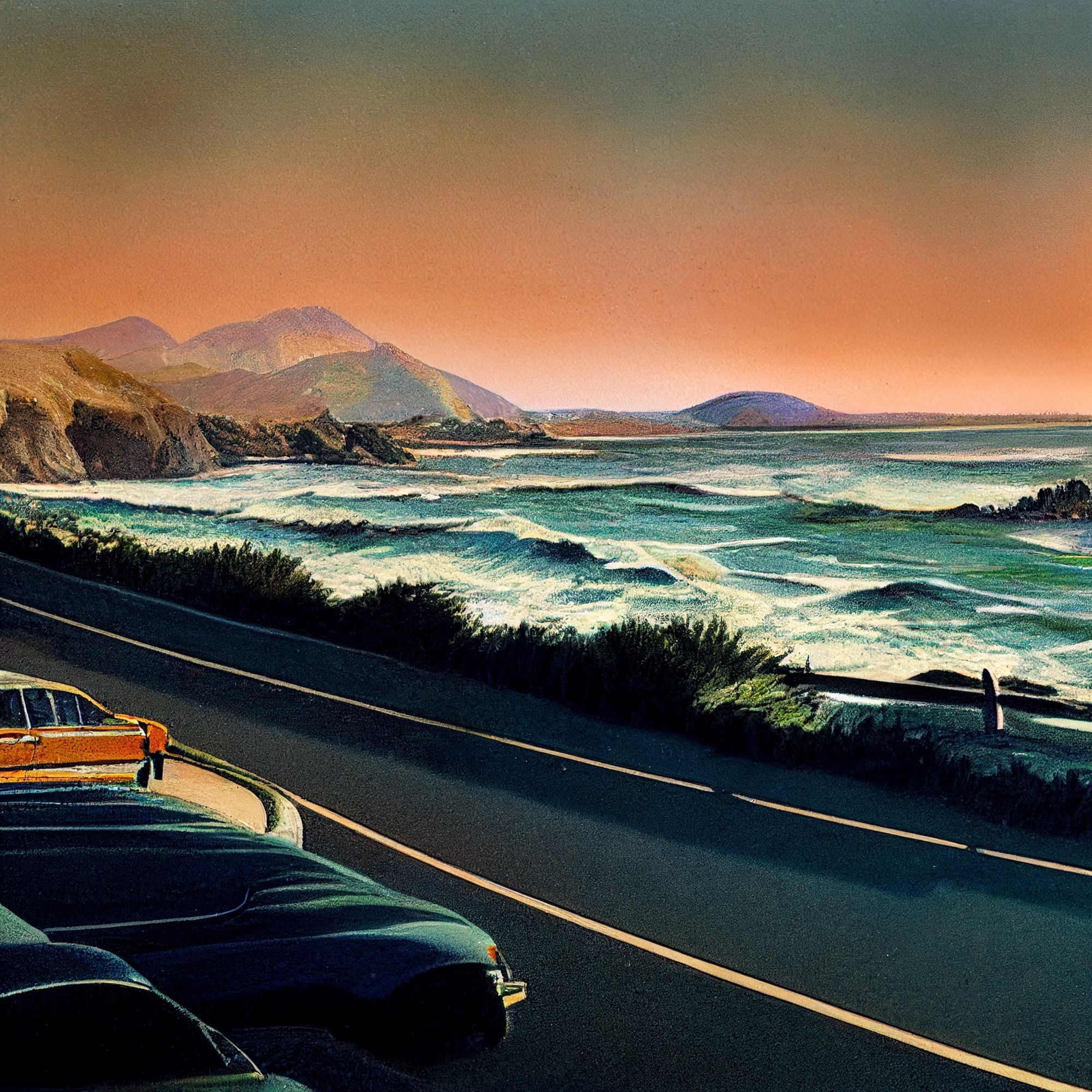
The value of our most trusted implements is to dig for love, context, and understanding. To seek context and understanding is to be human, it’s our choice (and challenge) to reveal our humanity through interactions with tools and systems.
Worry not about losing our humanity to AI, instead, fear an AI operating from human bias.
Virtual AI “artists” don’t bother me, but an AI sketch artist? Horrifying. AI-generated structural building supports don’t upset me, the thought of AI-planned neighborhoods does.
Outsourcing work to computers centralizes control among fewer and fewer people, until—just like in Hollywood blockbusters—only a select few douchebags at the top will be able to override exascale-level calculations.
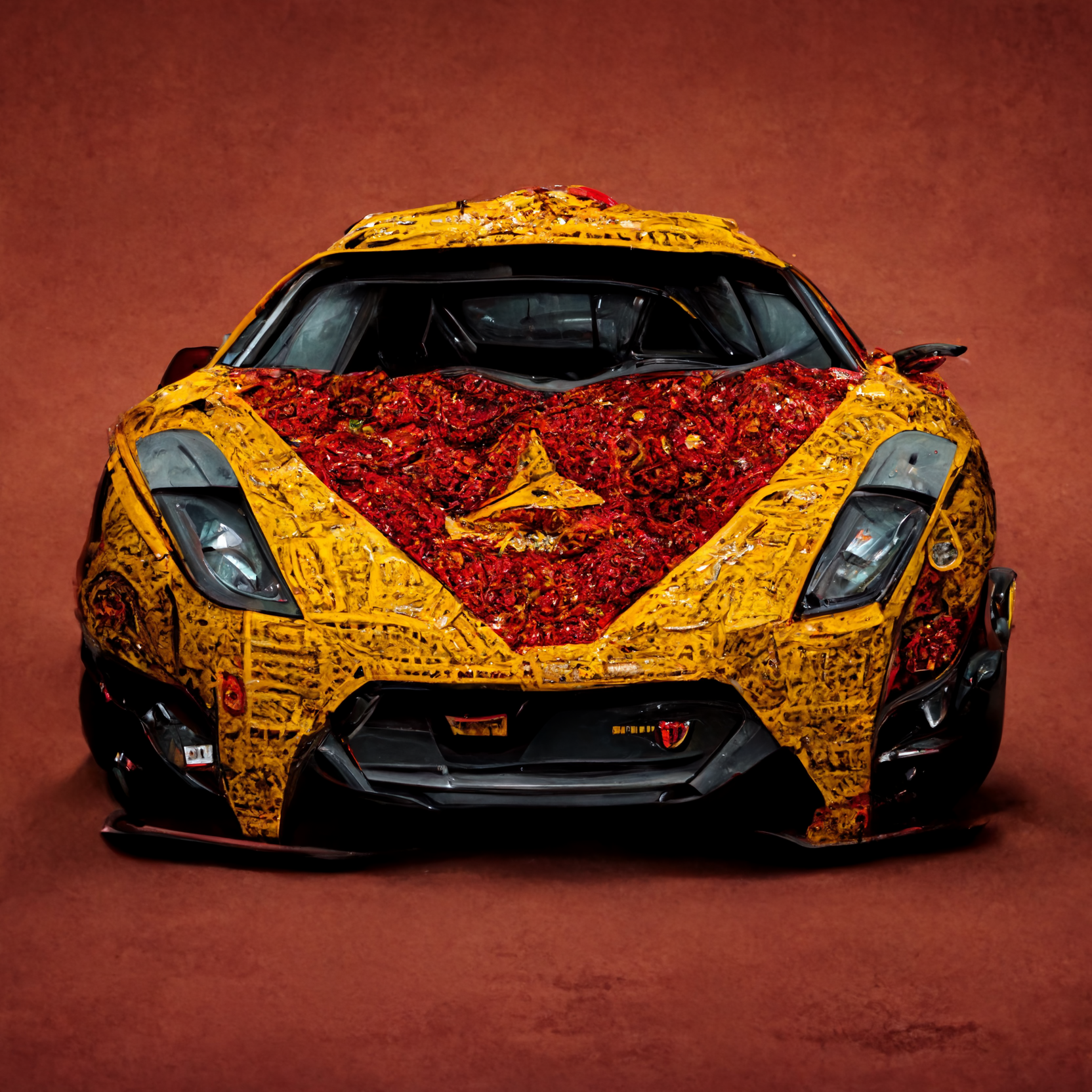
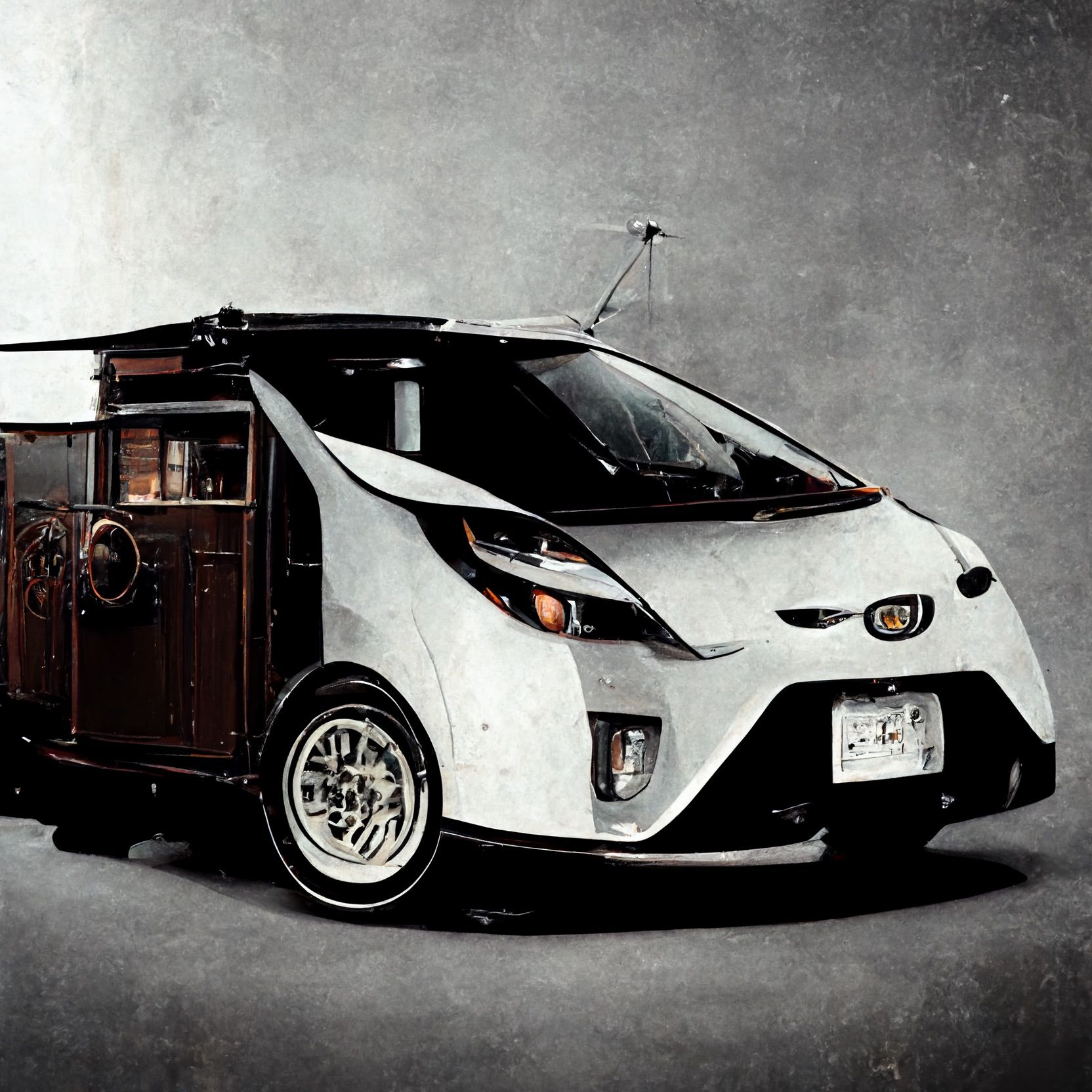
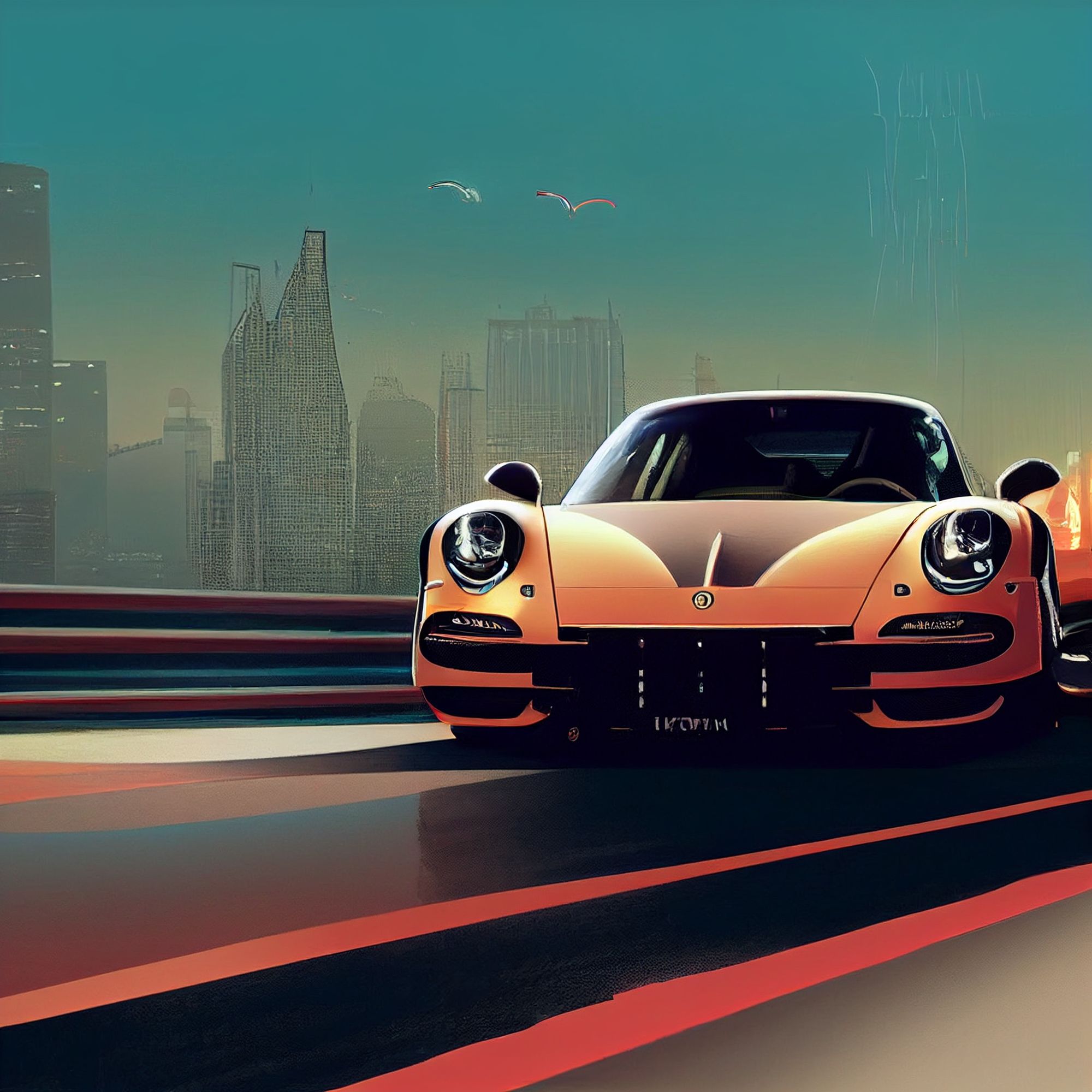
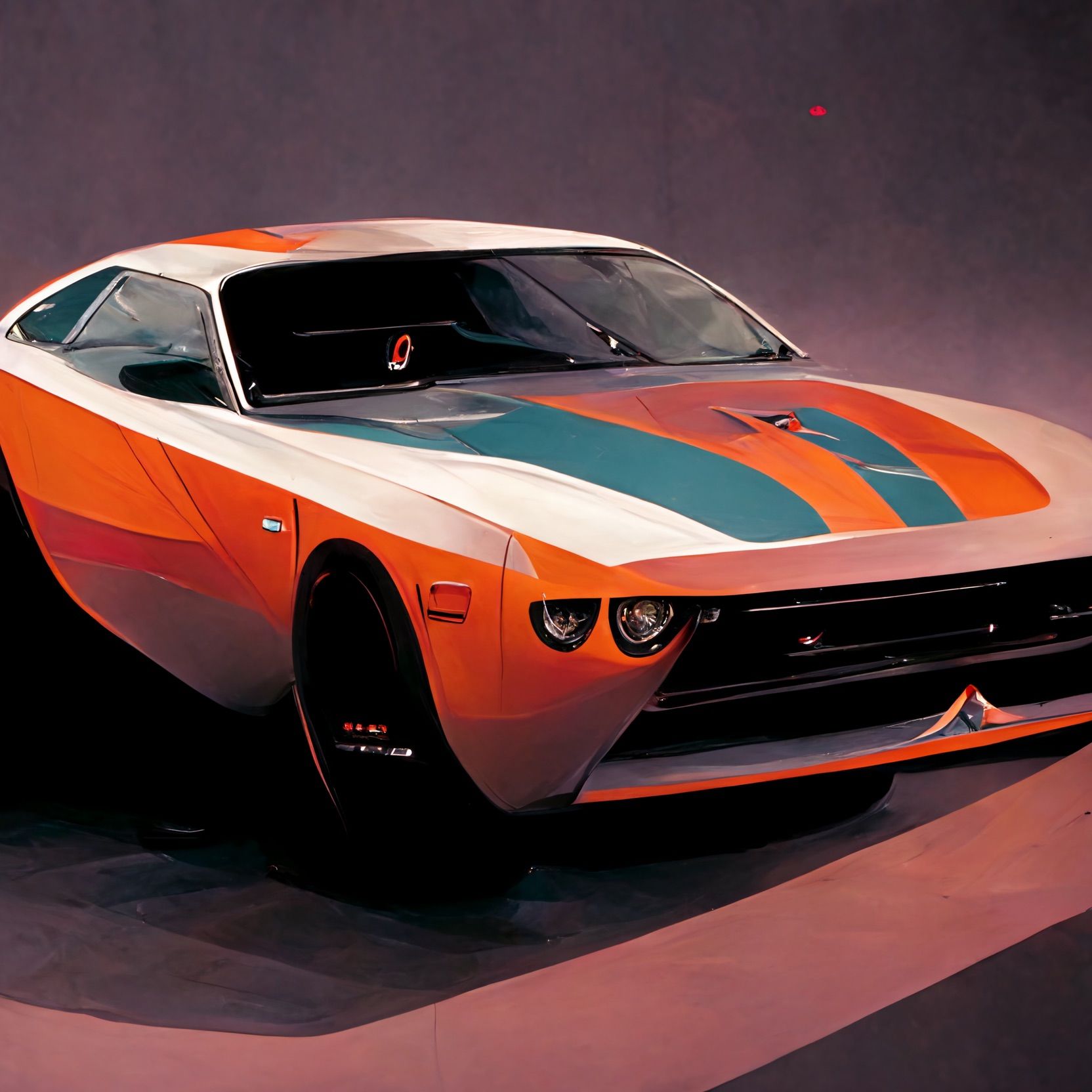
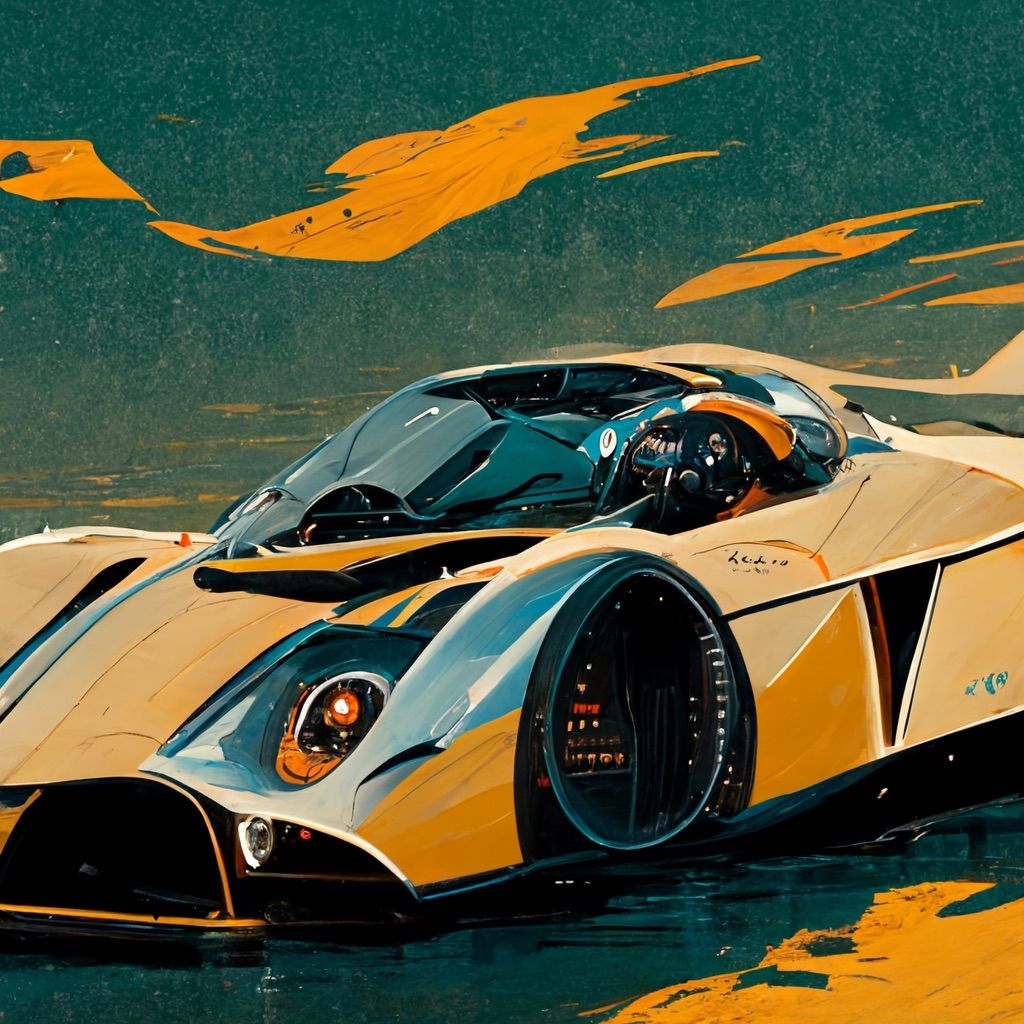
midjourney AI prompts :: 'a ford model t mixed with a toyota prius'; 'Thoughts on the Pagani Utopia, car-themed AI art, Nyck de Vries' F1 finish, and a captivating short film about a porsche 997 Turbo owner'; 'Luigi Colani design, Dodge Challenger'; 'pagani, zonda, huyera, utopia'
Here are a few AI scenarios I dreamt up related to cars and mobility:
Automaker X: Embarks on a 10-year research project using AI, and after giving it a perfect dataset, AI computes the most profitable, ecological, and successful strategy is to cancel all of the company’s six-figure EV sports cars and in their place produce a four-figure, 3-wheel, 2-stroke…biodiesel micro mobility pod.
- Do executives lobby to change diesel emissions regulations for the overall good of the environment—we are working with perfect data, after all—or would the board scoff at and ignore a winning AI-proposed strategy?
Automaker Y: Starts the undisputed best cloud-based car sharing service. Pricing per trip—the least expensive globally for riders, by far—is less costly because fares are calculated in realtime by AI from the socio-economic attributes of riders, who are then only required to pay what they are able to.
- If a customer realized they were paying the highest fare and sued because of the company’s ‘unfair’ pricing, how would the AI-assisted business model hold up in a court of human beings?
Automaker Z: An established maker of very pretty cars gives all of its past designs, sketches, engineering plans, production cars, and concepts into a billion-dollar well-to-wheel AI system. It designs, iterates, and manufactures the best, most authentic expression of Automaker Z ethos to date…but the company can now only afford to produce a single car type. Not to worry: the finished product is exquisite, profitable to manufacture, and goes on sale to huge acclaim worldwide.
- How does that car evolve over time, and who or what is responsible for designing its successor? How does manufacturing respond to external forces like weather, supply shortages, and pandemics when nobody understands the recipe enough to change it?
Be ready for decades of AI being correct and humans ignoring it, AI acting on our flawed premises, and intelligent AI (01001000 01101001 00100001) pondering at zettascale speeds why a species biologically driven to input love finds it so easy to output hate.
AI is a distorted mirror; we must always seek our true selves in its reflection.
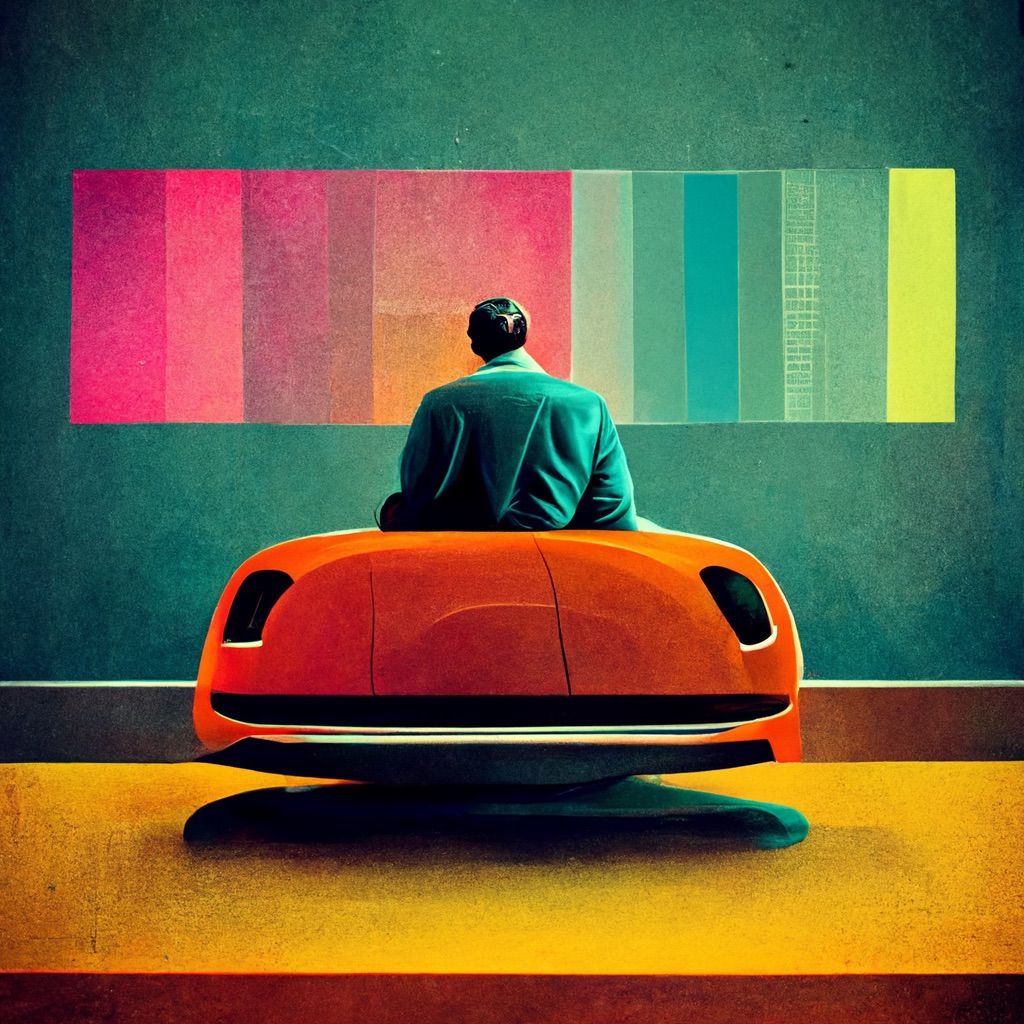
Note: Art in this story was generated by the author using midjourney AI, but I trust you knew that already. ;)
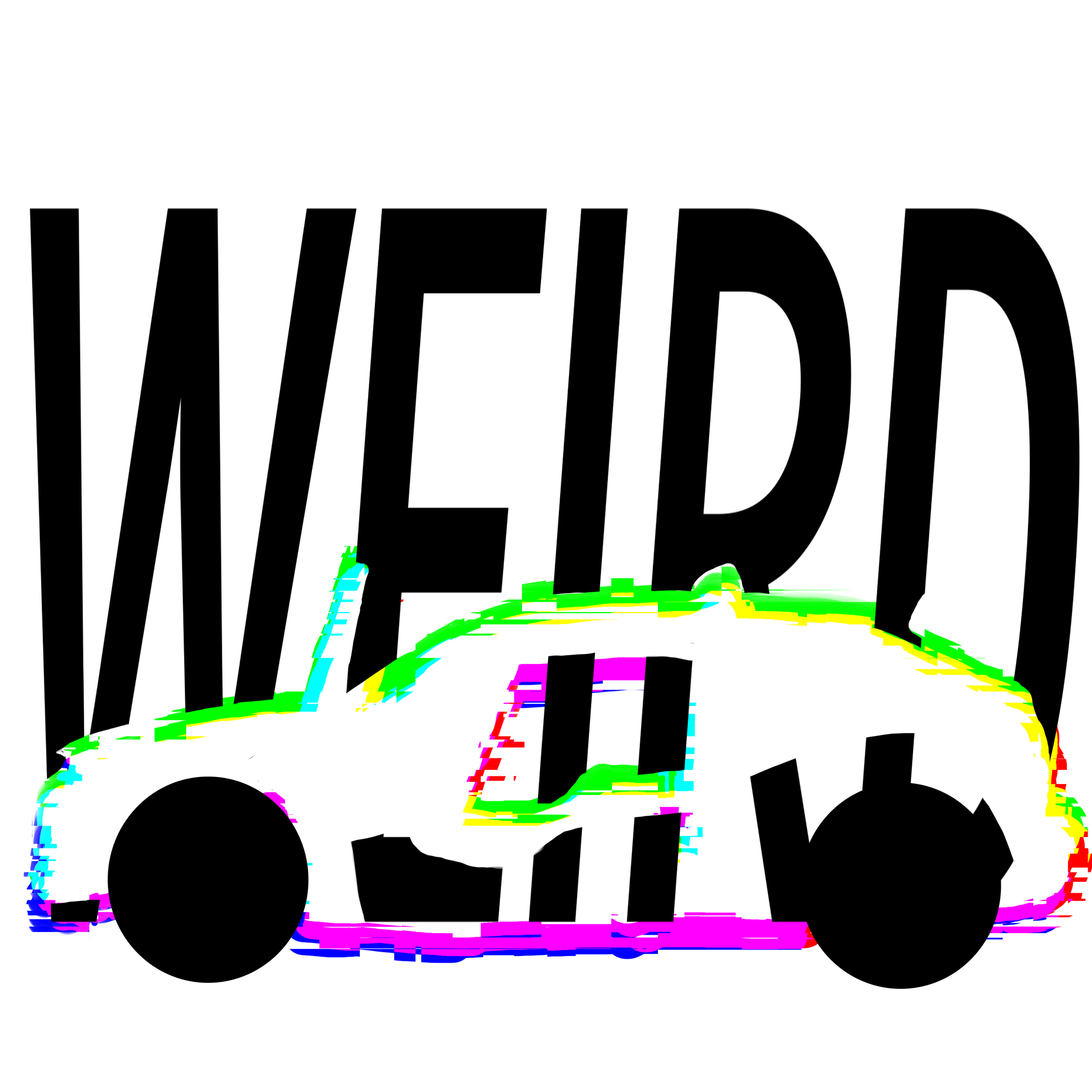

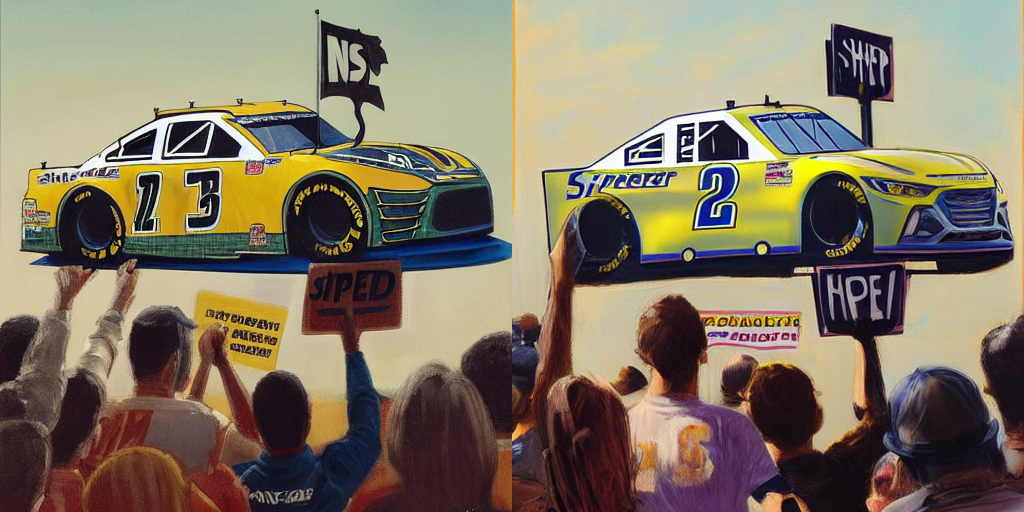
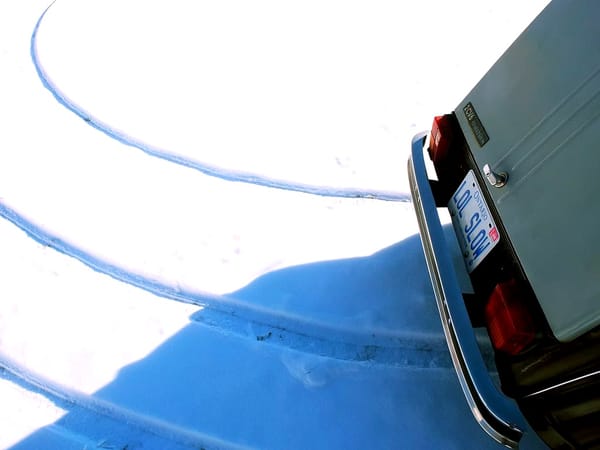
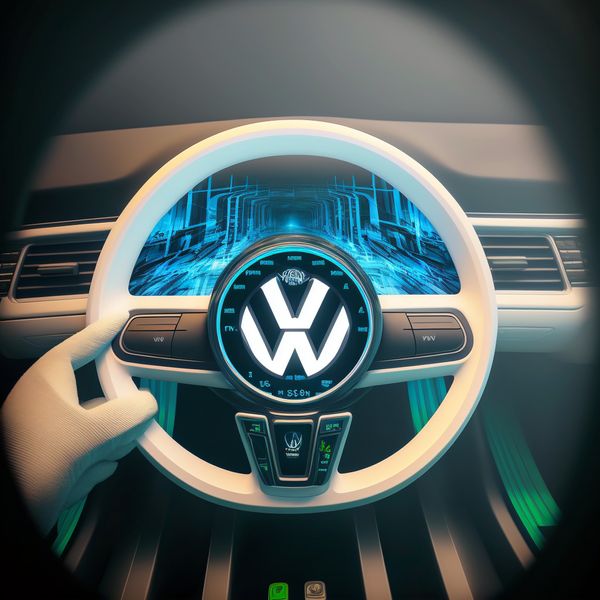

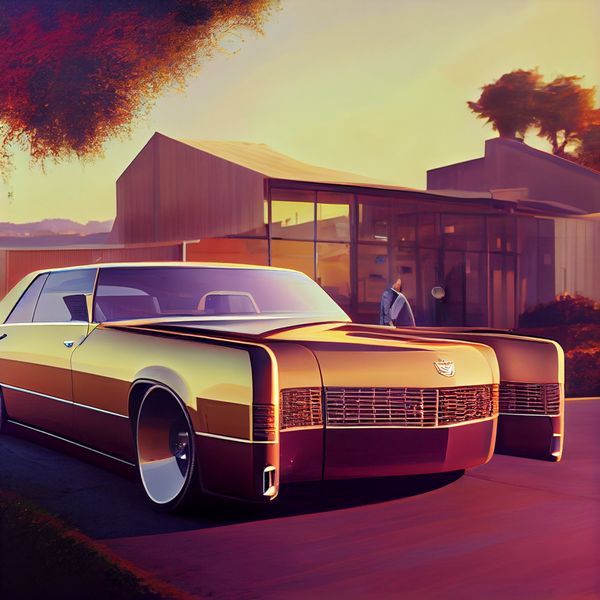
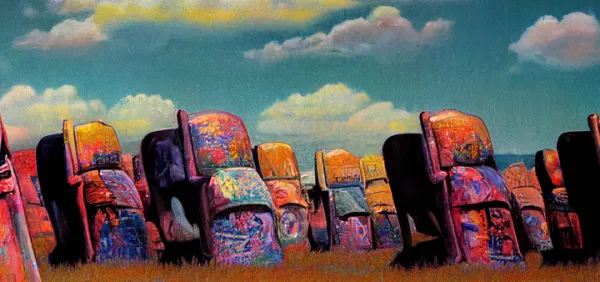
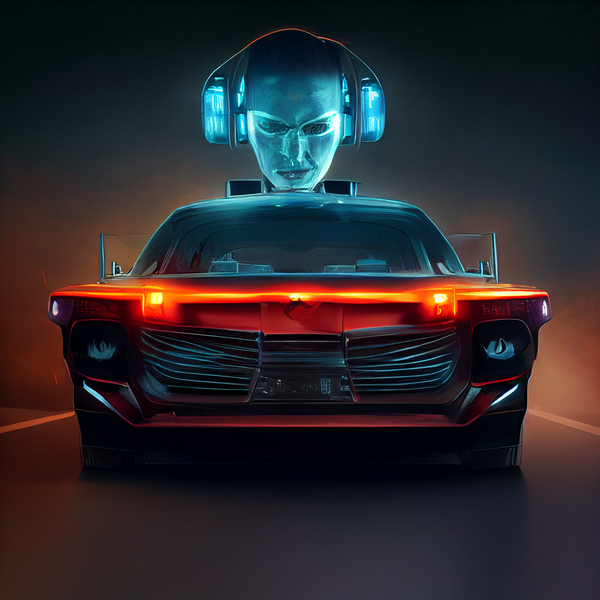
Member discussion